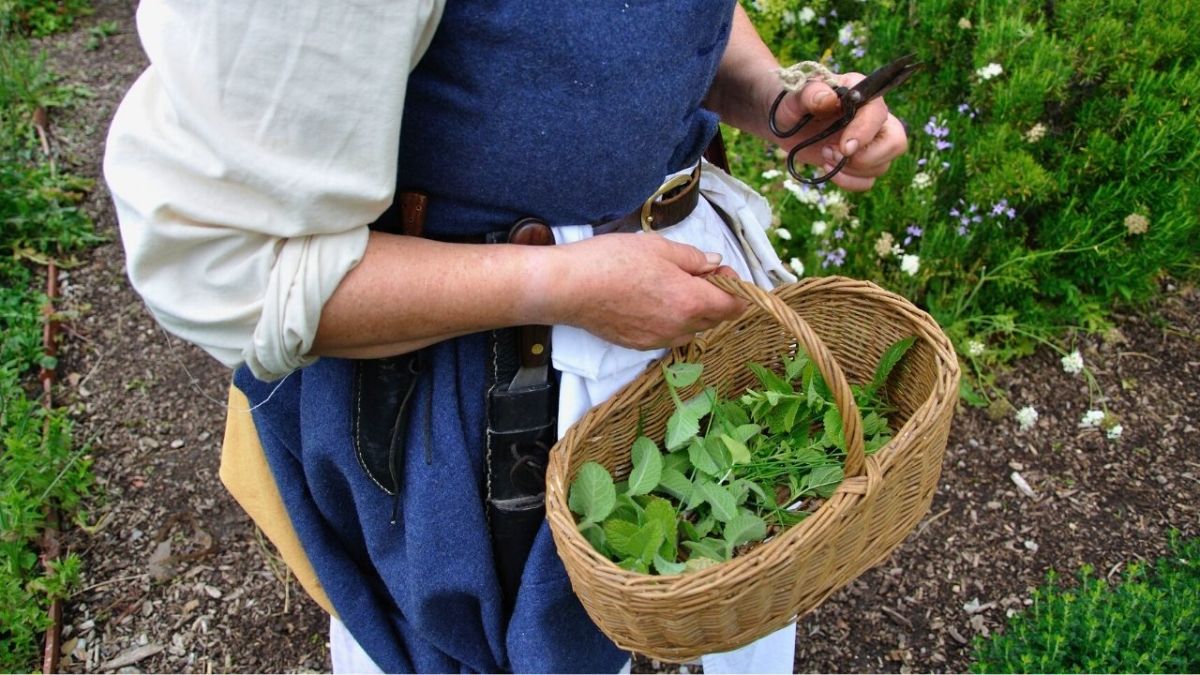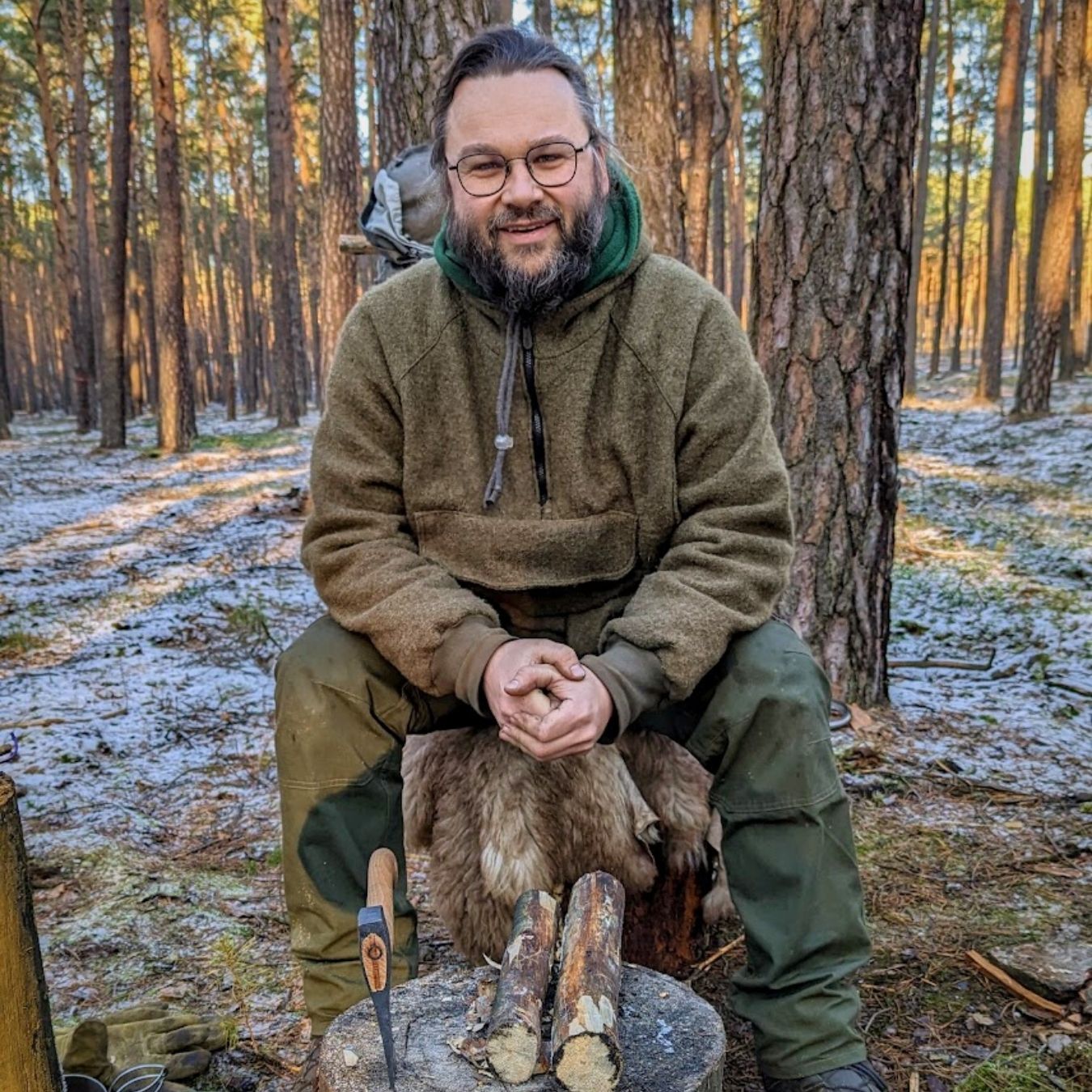
Foraging
Nomen
Meaning
Foraging is the act of searching for and gathering wild food resources in the natural environment. It is an essential skill in survival, bushcraft, and outdoor activities such as camping and hiking. Foraging involves identifying and harvesting edible plants, fruits, nuts, and mushrooms, as well as hunting and fishing for protein sources. It allows you to connect with nature, learn about local ecosystems, and sustain yourself in the wild. Foraging is a valuable skill for self-sufficiency and can provide a diverse and nutritious diet. It is important to have knowledge of edible and non-edible plants and to forage responsibly, respecting the environment and its resources.

Examples
„I love going foraging in the woods to find wild mushrooms and berries. It's a great way to connect with nature and gather fresh, organic food.“
„During our camping trip, we went foraging for firewood to keep our campfire going. It was a fun and practical way to gather the resources we needed for cooking and staying warm.“
„My friend and I went foraging for edible plants and herbs in the meadow. We found some delicious wild garlic and nettle leaves that we used to make a tasty soup.“
„When you're out in the wilderness, foraging for food becomes a crucial skill. Knowing how to identify edible plants and mushrooms can mean the difference between going hungry and having a nourishing meal.“
„Foraging is not just about finding food, it's also about connecting with the natural world around you. It's a way to learn about the different plants and their uses, and to appreciate the abundance that nature provides.“
Origin
The word "foraging" originates from the Old English word "forecgan," which means "to seek out" or "to search for." It has its roots in the Germanic language family, specifically the West Germanic branch. The concept of foraging can be traced back to our early ancestors, who relied on gathering wild plants, fruits, nuts, and seeds as a means of survival.
Over time, foraging has evolved and adapted to different cultures and environments. In ancient times, foraging was a crucial skill for hunter-gatherer societies, as it provided them with essential sustenance. As human civilization progressed and agriculture developed, foraging became less necessary for survival but remained an important skill for certain communities and individuals.
In recent years, foraging has experienced a resurgence in popularity, driven by a growing interest in sustainable living, reconnecting with nature, and the desire to source fresh, local, and wild foods. Today, foraging encompasses not only the search for edible plants but also the gathering of wild mushrooms, herbs, and other natural resources.
Foraging has also expanded beyond food gathering and is now associated with activities such as wildcrafting, herbalism, and natural medicine. It has become a way for people to connect with the natural world, learn about local ecosystems, and develop a deeper appreciation for the abundance of resources that nature provides.
Synonyms
Gathering, Hunting, Scavenging, Harvesting, Collecting, Procuring, Picking, Searching
Antonyms
Hunting, Gathering
Relatives
Hunting, Gathering, Wild edibles, Plant identification, Survival skills, Bushcraft, Natural resources, Food procurement
Historical and cultural importance
Foraging has a long history of cultural and historical significance. Throughout human history, foraging has been a fundamental means of survival, providing food, medicine, and resources for various communities and civilizations. In ancient times, foraging was the primary method of obtaining sustenance, as agriculture and domestication had not yet been developed.
Foraging played a crucial role in the lives of hunter-gatherer societies, who relied on their knowledge of the natural environment to gather edible plants, fruits, nuts, and roots, as well as hunt animals for meat and gather materials for tools and shelter. This practice allowed these early humans to adapt and thrive in diverse ecosystems around the world.
Foraging techniques and knowledge were passed down through generations, forming an integral part of cultural traditions and indigenous knowledge systems. Many indigenous communities still practice foraging today, preserving their ancestral connection to the land and maintaining sustainable relationships with their environment.
In recent years, foraging has experienced a resurgence in popularity, driven by a growing interest in sustainable living, reconnecting with nature, and the desire to source local, organic food. Foraging enthusiasts and experts explore forests, meadows, and coastal areas, identifying and harvesting wild edible plants, mushrooms, and other natural resources.
Foraging not only provides a means of obtaining nutritious food but also fosters a deeper understanding and appreciation for the natural world. It encourages individuals to develop their knowledge of plant identification, ecological relationships, and the seasonal cycles of the environment. By engaging in foraging, people can reconnect with their primal instincts and develop a more sustainable and harmonious relationship with nature.
More information about the term Foraging
Foraging: Exploring the Wild for Food and Resources
Foraging is the art of exploring the wild to find and gather food, medicinal plants, and other valuable resources. It is a skill that has been practiced by humans for thousands of years, and it is an essential part of survival and bushcraft. In this article, we will delve into the world of foraging, exploring its importance, techniques, and safety considerations.
The Importance of Foraging
Foraging allows us to connect with nature on a deeper level and develop a greater understanding of the environment around us. It provides an opportunity to learn about the different plants, fungi, and other natural resources that can sustain us in the wild. By foraging, we can reduce our reliance on modern conveniences and become more self-sufficient.
Foraging also offers a sustainable way to obtain food and resources. Instead of relying solely on agriculture or hunting, foraging allows us to utilize the abundance of wild edibles that nature provides. This can help reduce our impact on the environment and promote a more balanced ecosystem.
Foraging Techniques
When foraging, it is important to have a good understanding of the plants and resources in your area. Research and familiarize yourself with the edible plants, medicinal herbs, and other valuable resources that can be found in the wild. Learn to identify them correctly to avoid any potential risks.
Start by exploring your local surroundings, such as forests, meadows, and even urban areas. Look for signs of edible plants, such as berries, nuts, and edible greens. Take note of their characteristics, growth patterns, and any potential look-alikes that may be poisonous.
Foraging is not just about finding food. It also involves gathering resources such as firewood, natural fibers for cordage, and medicinal plants for first aid. Learn to identify and collect these resources responsibly, ensuring that you do not harm the environment or deplete its resources.
Safety Considerations
While foraging can be a rewarding experience, it is important to prioritize safety. Always be cautious and avoid consuming any plant or resource unless you are absolutely certain of its identification. Some plants may have toxic look-alikes, and misidentification can have serious consequences.
Carry a field guide or use a reliable foraging app to help you identify plants and resources accurately. If in doubt, consult with an experienced forager or expert in the field. They can provide guidance and help you avoid any potential risks.
Additionally, be mindful of your impact on the environment. Only take what you need and avoid over-harvesting. Respect the natural balance and diversity of the ecosystem, ensuring that future generations can also enjoy the benefits of foraging.
Conclusion
Foraging is a valuable skill that allows us to connect with nature, become more self-sufficient, and reduce our impact on the environment. By learning to identify and gather edible plants, medicinal herbs, and other valuable resources, we can enhance our survival skills and deepen our appreciation for the natural world. So, grab your field guide, head out into the wild, and embark on a foraging adventure!
Back to overview

